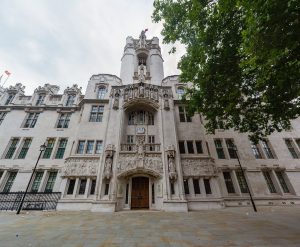Recent government action has brought illegal working into sharp focus, with a 25% increase in arrests for illegal working since the change of government. According to new data released by the Home Office, the period between 5 July and 31 October 2024 saw 2,299 arrests stemming from over 3,188 operational visits targeting businesses suspected of hiring illegal workers.
This rise in enforcement highlights the government’s commitment to cracking down on employers who fail to follow legal hiring practices. Nail bars, supermarkets, car washes, and construction industries were among the key areas targeted.
While these measures aim to protect vulnerable workers and create a fair playing field for law-abiding businesses, they also underscore the critical need for businesses to understand and comply with the regulations governing employment and immigration.

The Importance of Compliance
Employing individuals without conducting the necessary right-to-work checks can lead to severe consequences, including hefty civil penalties of up to £60,000 per worker and reputational damage to the business. For many employers, navigating the complex regulations surrounding employment and immigration compliance can be daunting. Mistakes, even unintentional ones, can lead to significant legal and financial repercussions.
During a recent nationwide operation in November, known as Operation Tornado, civil penalty referral notices worth up to £4 million were issued to over 50 businesses. These penalties are a reminder of the importance of establishing robust compliance processes to avoid hiring individuals without proper authorisation.
How We Can Support Your Business
If your business is currently facing challenges related to compliance, including allegations of hiring illegal workers, or if you are seeking to establish secure processes for hiring international employees, we can help.
Our immigration team specialises in assisting businesses with obtaining sponsor licences, a critical requirement for employing skilled workers from abroad. A sponsor licence not only ensures compliance with UK immigration laws but also opens the door to a broader pool of talent to meet your business needs.
We offer tailored support throughout the sponsor licence application process, including:
- Assessing your readiness: We evaluate your current systems and advise on any adjustments needed to meet Home Office requirements.
- Preparing your application: Our team will guide you in compiling and submitting all necessary documentation to ensure your application meets stringent compliance standards.
- Providing training and ongoing support: Once you have obtained your licence, we offer continued support to help you maintain compliance, including guidance on record-keeping, monitoring responsibilities, and preparation for potential audits by the Home Office.
Act Now to Protect Your Business
The recent government focus on illegal working demonstrates that compliance is not optional but essential. By proactively addressing your business’s employment and immigration processes, you can protect your operations from costly penalties and reputational harm.
We have extensive experience supporting businesses across various industries to meet their legal obligations while empowering them to grow and thrive. If you are concerned about your current hiring practices or wish to secure a sponsor licence to access international talent, contact us today to learn how we can help you achieve compliance and peace of mind.
Have questions? Get in touch today!
Call us on 020 7928 0276, we will be taking calls from 9:30am to 6:00pm.
Email us on info@lisaslaw.co.uk.
Use the Ask Lisa function on our website. Simply enter your details and leave a message, we will get right back to you: https://lisaslaw.co.uk/ask-question/
For more updates, follow us on our social media platforms! You can find them all on our Linktree right here.





















